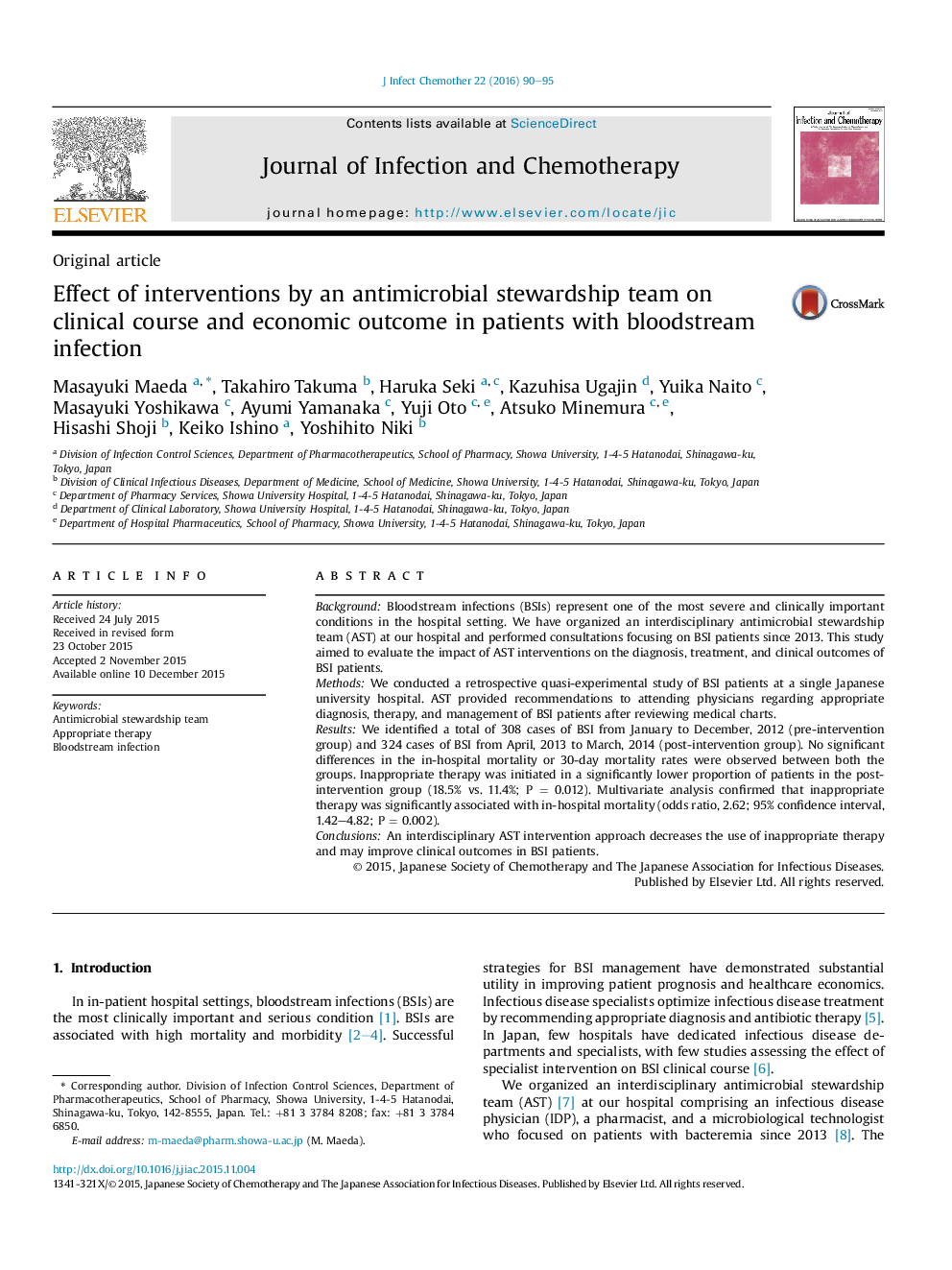| Article ID | Journal | Published Year | Pages | File Type |
|---|---|---|---|---|
| 3376721 | Journal of Infection and Chemotherapy | 2016 | 6 Pages |
BackgroundBloodstream infections (BSIs) represent one of the most severe and clinically important conditions in the hospital setting. We have organized an interdisciplinary antimicrobial stewardship team (AST) at our hospital and performed consultations focusing on BSI patients since 2013. This study aimed to evaluate the impact of AST interventions on the diagnosis, treatment, and clinical outcomes of BSI patients.MethodsWe conducted a retrospective quasi-experimental study of BSI patients at a single Japanese university hospital. AST provided recommendations to attending physicians regarding appropriate diagnosis, therapy, and management of BSI patients after reviewing medical charts.ResultsWe identified a total of 308 cases of BSI from January to December, 2012 (pre-intervention group) and 324 cases of BSI from April, 2013 to March, 2014 (post-intervention group). No significant differences in the in-hospital mortality or 30-day mortality rates were observed between both the groups. Inappropriate therapy was initiated in a significantly lower proportion of patients in the post-intervention group (18.5% vs. 11.4%; P = 0.012). Multivariate analysis confirmed that inappropriate therapy was significantly associated with in-hospital mortality (odds ratio, 2.62; 95% confidence interval, 1.42–4.82; P = 0.002).ConclusionsAn interdisciplinary AST intervention approach decreases the use of inappropriate therapy and may improve clinical outcomes in BSI patients.
